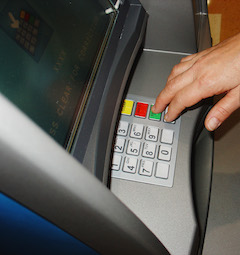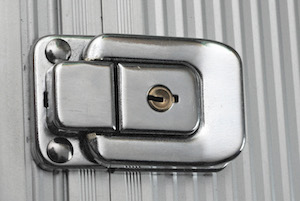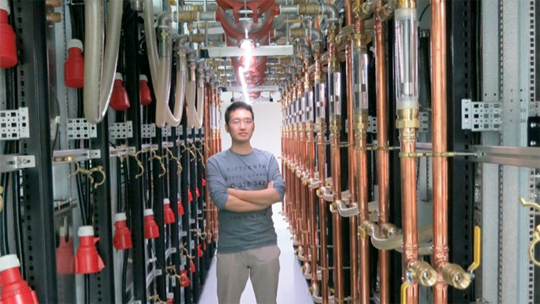“This ‘telephone’ has too many shortcomings…the device is inherently of no value to us.” -Western Union, 1876
“While theoretically and technically the television may be feasible, commercially and financially it is an impossibility.” – Lee DeForest, Inventor
“By 2005 or so, it will become clear that the Internet’s impact on the economy has been no greater than the fax machine’s.” – Paul Krugman, American Economist
 Every major technological development in our modern world has been met with skepticism in its early days, whether it’s the telephone, radio, television, cell phone, or the Internet.
Every major technological development in our modern world has been met with skepticism in its early days, whether it’s the telephone, radio, television, cell phone, or the Internet.
Because of that, I’ve been educating myself on how Bitcoin works, what it does, and who are the winners and losers.
Bitcoin has been commonly hailed as one of the following:
- Digital currency
- New form of email
- PayPal without fees
They are all correct – but there’s much more.
It’s difficult to explain new technologies with old paradigms, but the value proposition Bitcoin brings is very similar to the internal combustion engine that was invented in the late 19th century.
From there, we built cars, trucks, boats, motorcycles, and airplanes from variations of the same invention.
In this post I’ll attempt to explain the basics while giving you my thoughts on how this will impact the future of e-commerce and physical products.
THIS IS NOT FINANCIAL, TAX, OR INVESTMENT ADVICE, SO INVEST AND SPECULATE ON BITCOIN AT YOUR OWN RISK.
This post is broken down into the following parts:
- How We Use Money
- How Bitcoin Works
- Benefits For Consumers
- Benefits For Merchants
- Hurdles to Overcome
- Risks Of Bitcoin
- How To Buy Your First Bitcoin
How We Use Money
 Before we go into the details of Bitcoin, let’s get a refresher on how our current money system works.
Before we go into the details of Bitcoin, let’s get a refresher on how our current money system works.
Whether you’re using the United States Dollar, Euro, or Canadian Dollar, there is a central government that regulates the money supply.
We place our trust in government that it will not be counterfeit and will hold value as a financial instrument.
In global commerce, the US dollar and Euro are widely accepted compared to the Argentina Peso, Indonesia Rupiah, or other currencies due to various economic, political, and market factors.
As a result, you have the foreign exchange market where people can switch between different currencies, along with fees made by banks that take part in those transactions.
 Each country also has its own rules on moving money in and out of the country, subject to transfer limits, fees, and additional regulations based on politics.
Each country also has its own rules on moving money in and out of the country, subject to transfer limits, fees, and additional regulations based on politics.
Try sending money to North Korea and you’ll know what I mean.
When you keep your money at a bank and want to invest in stocks, bonds, precious metals, or other forms of investments – you need to go through a licensed brokerage to execute the transactions.
Behind these brokerages are huge operations that include traders, analysts, compliance officers, administrative staff, and much more.
When a company like Facebook, Twitter, or LinkedIn goes public through an initial public offering (IPO), investment banks work behind the scenes on pricing the stock, how many shares to offer, and who gets to participate.
For e-commerce merchants, credit card transaction fees range anywhere from 2-3% in developed countries and up to 5% in other parts of the world. Beyond merchant fees, there are also fraud responsibilities and chargebacks to worry about.
To move money between accounts, it also takes 3-4 business days and is subject to withholding at your bank’s discretion.
 When you donate money to the Red Cross or other forms of charity, there is a huge organization it must support before the money reaches its victims.
When you donate money to the Red Cross or other forms of charity, there is a huge organization it must support before the money reaches its victims.
In unfortunate cases, it never gets there because of corrupt local officials that pocket it.
For immigrants working in developed countries that send their income back home to family, the intended amount never fully arrives due to fees and other remittance costs that can get up to 30%.
In financial planning where wills, property deeds, and transfer of assets are involved – one must have an expensive team of lawyers, accountants, and wealth managers for proper execution.
Every transaction listed above has an inherent friction in labor, regulation, or bureaucracy.
Bitcoin eliminates all of them.
 This is how Bitcoin works at a very high level.
This is how Bitcoin works at a very high level.
Bitcoin is not just money – it’s an invention that allows people to move value around the internet.
It democratizes money by separating it from a function of power by governments, to an exchange between two individual people.
Think of it as the internet of money.
Like the invention of the internal combustion engine, we built cars, trucks, boats, motorcycles, and airplanes.
Like the invention of the internet, we built email, instant messaging, social media, blogs, SaaS apps, and e-commerce.
By signing up for a Bitcoin wallet, you can have access to instant peer-to-peer transactions, worldwide payments, with zero to no transactions fees.
There is no central government or bank managing the money, and nobody owns it or controls it like a country’s currency.
Everyone can participate whether you are a billionaire or a high school student, and money can be sent from North America to New Zealand in about 10 minutes.
If you’re still with me, the potential for disruption is HUGE.
How Bitcoin Works
There are three main components of a financial exchange – account balances, transactions, and processing. Bitcoin functions the same way, but with a different set of terms and technologies used to define them.
Financial Term |
Bitcoin Term |
| Account Balances | Block Chain, Wallet |
| Transactions | Private Keys, Public Keys |
| Processing | Miners |
 Balances in a wallet determine who has Bitcoin, whether that’s 0.5, 1.25, or 100 BTC.
Balances in a wallet determine who has Bitcoin, whether that’s 0.5, 1.25, or 100 BTC.
Since Bitcoin is digital money, it can be copied. So how do you avoid spending the same amount of money twice?
This is where the block chain comes in, storing all transaction data on the public ledger. A private key must be matched with your public key for a transaction to go through.
The block chain is similar to how a bank keeps track of your account balances. This data is anonymously shared on the ledger, and all confirmed transactions are included, verified, encrypted, and distributed across the entire Bitcoin network.
Bitcoin is unique in that only 21 million will ever be created, unlike our currency system where governments can print more money. Bitcoin can be divided into 8 decimal points or more if needed to meet future demand.
 Similar to how PayPal works, transactions happen between two digital wallets that have a balance.
Similar to how PayPal works, transactions happen between two digital wallets that have a balance.
Every wallet is consisted of two keys – one public and one private.
The public key is used to receive and send Bitcoins like an e-mail address, and the private key is used as a signature and authorization.
Transactions are listed only as addresses, which aren’t tied to anyone’s identity allowing for privacy protection. Once the transaction has been carried out and confirmed by the entire network, it cannot be reversed.
But what if a hacker wants to make fraudulent transactions and insert them into the block chain?
This is where mining comes in.
 Mining is the process of confirming transactions that will be included on the block chain across the entire network.
Mining is the process of confirming transactions that will be included on the block chain across the entire network.
Blocks are linked together so that each one proves the previous one was valid.
It works via chronological order, protects neutrality of the network, and allows everyone to agree on the state of the system. For example, if I have five Bitcoins and send one to a friend named Bob, the block chain would indicate:
Before |
After |
|
|
Prior to confirming transactions and adding them on the public ledger, miners must first solve a complex computer problem to win the opportunity.
They also receive a very small amount of Bitcoin once they successfully solve the problem and confirm a transaction.
It sounds confusing, but why is this needed?
 The problem solving aspect of this network serves as a built-in defense mechanism against fraud and hackers.
The problem solving aspect of this network serves as a built-in defense mechanism against fraud and hackers.
You see, for hackers to post fake transactions on the block chain and steal the world’s supply of Bitcoin, they must be able to beat the entire global network of miners trying to correctly solve the problems and be one step ahead of them.
As the network gets bigger, the computing power that’s needed to solve these problems exponentially increases and is virtually impossible to stay ahead.
So how do these problems work?
The problems presented to miners are difficult to solve but easy to duplicate once it’s completed.
For example, if I asked you to guess two numbers in my mind that add up to 200, what would you guess?
- 200 and 0
- 125 and 75
- 180 and 20
- 10 and 190
- …or another combination?
As the complexity increases, you can see how it would take more effort to solve.
But once you get the answer (100+100), it’s easy to duplicate and share that information.
The actual problems are WAY more complicated than this.
But for hackers trying to enter fraudulent transactions on the block chain, they would need enough computing power to solve these problems faster than the entire network of miners in the world.
Otherwise, they would just fall behind and never catch up. In addition, they would not get rewarded with Bitcoin by participating!
On the grander scale, this method of security is a lot cheaper than having bank vaults, armored trucks, fraud prevention centers, and teams of security guards moving physical money around the world.
Bitcoin has a network effect similar to the telephone and Internet. As more users get on board with the system, the more effective and powerful it becomes.
Within E-Commerce, there are plenty of benefits for consumers, merchants, and suppliers that choose to accept Bitcoin.
Benefits For Consumers
 In 2014, there are only 40-50 countries in the world that have access to modern banking where consumers have credit cards, online banking, and consistent access to an established financial infrastructure.
In 2014, there are only 40-50 countries in the world that have access to modern banking where consumers have credit cards, online banking, and consistent access to an established financial infrastructure.
Many folks living in developing countries don’t have access to a bank, Paypal, or other third party payments available to due to the risk profile.
As a result, there is a large population of the world that’s excluded from participating in online commerce.
If you’re buying products overseas with Bitcoin, foreign exchange fees can be avoided. You can send money between friends and families anywhere in the world without restrictions.
Unlike a physical wallet that we use to carry cards, cash, and IDs – Bitcoin wallets can be backed up.
You see, when you lose your wallet at a cafe, outside of cancelling your cards and getting cash from the ATM again, there’s not much you can do.
There’s nobody you can call to retrieve that money and if you’re lucky, someone may bring it back to you.
Bitcoin actually allows you to back up and save multiple copies of the same wallet, since it’s digital by nature.
However, you can only spend the money once by unlocking it with the private key.
This concept is hard to grasp at first, but it’s quite amazing.
Benefits For Merchants
Bitcoin presents many benefits over the conventional credit card system, especially in the world of payment disputes.
 Chargebacks: Many e-commerce merchants deal with the nightmare of chargebacks, where a consumer purchases a product and calls their bank to cancel the transaction days, weeks, or sometimes months later.
Chargebacks: Many e-commerce merchants deal with the nightmare of chargebacks, where a consumer purchases a product and calls their bank to cancel the transaction days, weeks, or sometimes months later.
This function is meant to protect consumers from credit card fraud, but in many cases it’s abused and the merchant loses out on inventory and gets flagged by their payment processor.
In chargebacks, banks reverse the transaction and hold the money from merchants until they can prove the customer wanted to make the purchase.
This can take weeks to gather the proper evidence and paperwork, causing additional stress on business owners.
Credit Card Processing Fees: Conventional credit card fees in developed markets charge anywhere from 2-3% to the merchant. For business models with thinner margins such as drop shipping, having an extra 2-3% adds a lot to the bottom line over time.
Bitcoin can also be sent from the United States to Singapore in under 10 minutes, as they have no physical location, limits, delays, holdings, or banking fees.
Fraud Protection and PCI compliance: As a merchant accepting credit cards, there are multiple security checks and financial compliance regulations to adhere to.
Bitcoin still requires wallet security on both sides of the transaction, but merchants no longer carry the cost and responsibilities that come with processing or handling sensitive credit card data.

International Wire Transfers: If you’re using an overseas supplier, chances are they won’t have a bank account in your native country.
That means every time you put in an order of inventory, you’re spending anywhere from $25-$40 USD per transaction on the wire transfer.
Depending on how many suppliers you have, this cost can add up to a significant amount.
Multi-Signature: As Bitcoin is also an open-source ecosystem for programming, entrepreneurs and developers can create new products, services, and apps on top of this platform. Once again, it’s similar to how we built cars, boats, motorcycles, and planes off the invention of the combustible engine.
For example, third party mediation such as escrow can be baked it into transactions. It can be constructed in the way that a certain number of people’s signatures are required in order for the transaction to go through.
The applications for this function can be widespread with custom scripts and triggers from contracts, transfer of assets, delivery of product, and much more.
Hurdles To Overcome
As promising as Bitcoin sounds, I believe there are still a few hurdles that need to be overcome for mainstream adoption. As with any predictions, there’s a chance I could be totally wrong, but time will tell.
 Store of Value: To get your hands on some Bitcoin, you’ll need to trade it for some native currencies such as the US Dollar or Euro.
Store of Value: To get your hands on some Bitcoin, you’ll need to trade it for some native currencies such as the US Dollar or Euro.
Our day-to-day lives still operate on these currencies and until a tipping point is reached where it’s just as convenient to pay with Bitcoin versus cash or credit card, it will still remain fairly niche among early advocates and adopters.
Denominations: There is a hard limit of 21 million Bitcoins that can ever be mined. From there, one Bitcoin can be divided down into eight decimals or more as needed in the market.
For your average Joe, it will take a long time to inherently understand the value of smaller denominations such as mBTC (milli-Bitcoin). There are too many zeros to wrap your mind around compared to a $5, $10, or $100 dollar bill.
Public Persona: Bitcoin still has a geeky stigma like many early technologies before they hit mainstream adoption. Unlike the internet and telephone that are paradigm shifts in communications, Bitcoin changes our approach to money.
Elderly folks who don’t use the Internet can still get by these days, but when it comes to money – Bitcoin is a different ball game.
Risks Of Bitcoin
 While Bitcoin has cryptography and security baked into its architecture, there is still a fundamental risk to the security of your wallet.
While Bitcoin has cryptography and security baked into its architecture, there is still a fundamental risk to the security of your wallet.
If someone gets access to your private key, they’ll have the rights to use your Bitcoin on the public key.
Currently there are two ways to store your Bitcoin wallet.
One is to have it on your physical harddrive, but the risk is that if your computer breaks down or is stolen, your Bitcoins will be lost forever.
The other solution is to have it hosted on a 3rd party service like Coinbase or Blockchain, where it functions in a similar way to Paypal. However, your wallet is at risk if their security measures are ever compromised.
Bitcoin wallets need to be protected in the long term via offline or non-digital formats. Wallet security can be broken down into two goals:
- Protecting your wallet against losses
- Protecting your wallet against theft
Paper wallets are a method to store Bitcoins offline in a non-digital format.
A paper wallet is a physical record of a private key and it’s corresponding public key.
The public key can be used to receive Bitcoins anytime, and they will remain inaccessible until the private key is imported into a wallet. The private key proves your rights to spend the Bitcoins.
As Bitcoin transactions are irreversible by design, it’s critical to keep your private key backed up and secure.
There are more details to wallet security, but as Bitcoin is an open-source and programmable platform, there are entrepreneurs currently trying to solve this problem with new products and services.
How To Buy Your First Bitcoin
 The nature of such a disruptive technology like Bitcoin is that it will either take off or fall completely flat on its face.
The nature of such a disruptive technology like Bitcoin is that it will either take off or fall completely flat on its face.
I’m excited at the value propositions that Bitcoin brings, not just at a currency level but also as a platform to build new products and services.
It’s potential to democratize financial transactions while reducing the labor, friction, and inefficiencies in our current system will have enormous impact on a global scale.
Remember – it’s like the internet of money.
There will be many winners and losers, and getting yourself educated on how Bitcoin works is just one of the first steps to preparing yourself for this change.
Signing up for a Bitcoin wallet takes less than 15 minutes.
However, buying your first Bitcoin will take 3-4 business days for your bank to clear the transaction. Once it’s in your wallet, you are ready to explore this brave new world.
Remember to back up your private key in an offline method that can’t be duplicated. Otherwise if it’s lost or copied via a virus or hacker, someone can have access to your wallet.
If you’re going with a 3rd party wallet provider, make sure to choose one that has two-step authentication with a mobile device.
I hope you found this helpful. Here are some recommended resources if you also want to do a deep dive on Bitcoin:
- Why Bitcoin Matters
- Bitcoin: A Peer-To-Peer Electronic Cash System
- Bitcoin: A Peer-To-Peer Electronic Cash System (Audio)
- The True Value Of Bitcoin – What You Need To Know (Audio)
- The Future Of Bitcoin – Bust, Bubble, or Breakthrough (Audio)
- The Pros And Cons Of Bitcoin (Audio)
- Andreas Antonopoulos on Joe Rogan Experience
- Let’s Talk Bitcoin Podcast
Subscribe to Build My Online Store in your favorite podcast player, or check out the episode list of our eCommerce podcast.



Comments
Well I’m not As confused as I was, but here’s what I don’t understand: how is the infrastructure financed and who is making a profit on this technology? That bitcoin mining operation in Hong Kong looks like it was very expensive to build. How do they recoup their investment and how long would it take till they see a profit?
Miners receive a small amount of Bitcoin when they solve the problem and confirm a transaction.
It’s very possible transaction fees will be introduced in the future into the entire ecosystem, but it probably won’t be anywhere near the 3-5% that we pay with Visa/MC now.
If anybody is curious about mining you can send me a message. My partners and I build and manage rigs.
How much does the most expensive rig cost? Is it still even worth it to get into the mining game at this stage
A rig that will yield you approximately 1 bitcoin per month is going to run you around 100,000nt. Most expensive isn’t the way to go because you can only connect so many video cards to the motherboard. You need the most energy efficient and best algorithms to play the game. Is it worth it to mine? Hell Yeah it is! If you only get back 20,000nt each month your investment will be paid back in 5 months. The rest is profit.
So video card GPUs can be rigged into Bitcoin processing?
I don’t mine bitcoins. I mine the alt coins and convert them to bitcoins. Mining bitcoins would be damn near impossible.
That makes sense, probably a lot less resource intensive and expensive to do so.
exactly
thanks for clearing up many questions I had about bitcoin. awesome post 🙂
yeah buddy!
Great blog post. If bitcoin gets legs, you can be governments across teh globe will tax it.